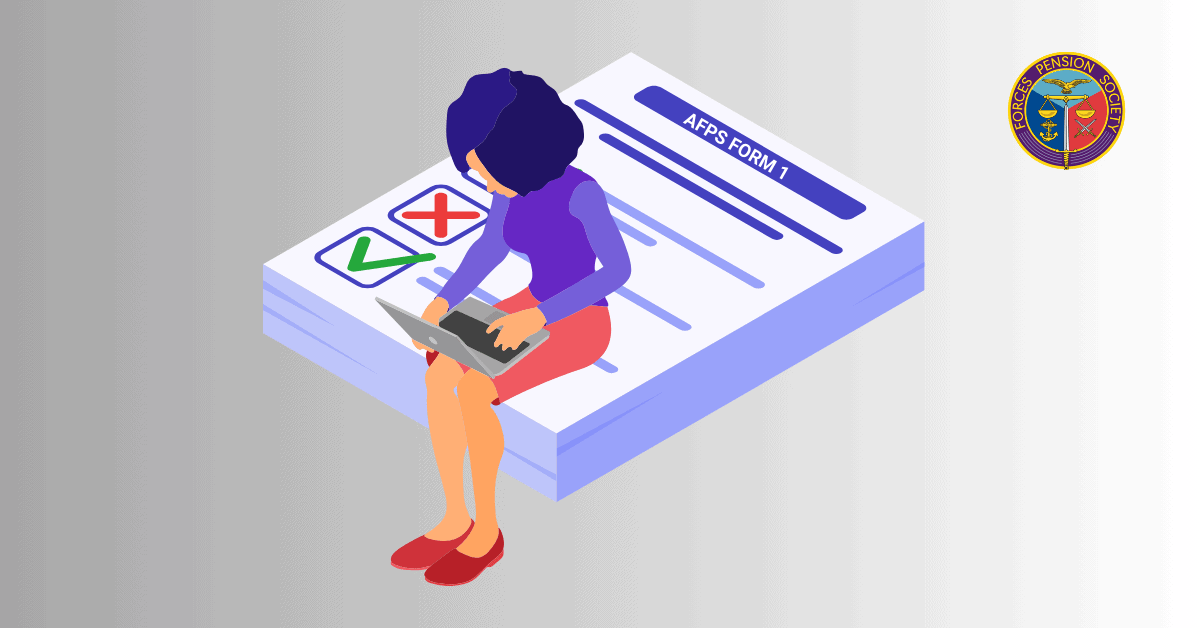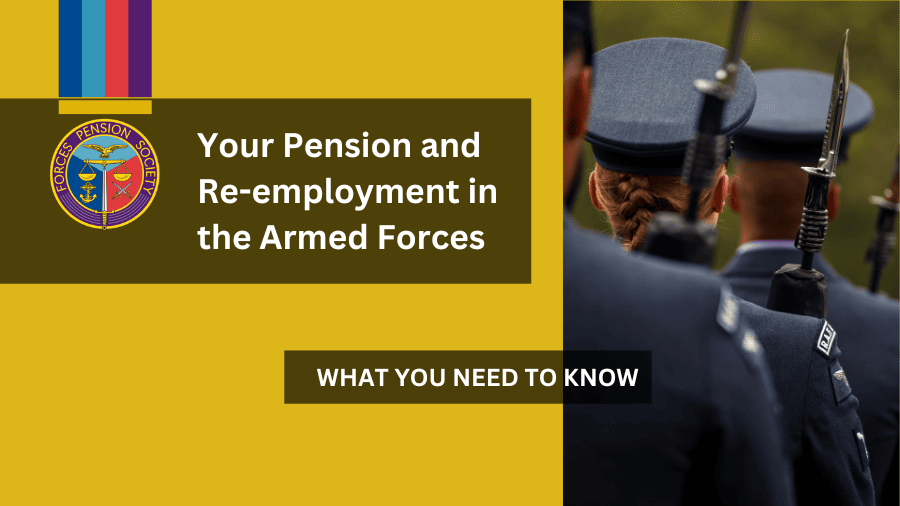
In this article written for the January issue of Pathfinder International Magazine we set out how and why your Armed Forces pension arrangements are changing, and what, if anything, will be expected of you in due course.
Let’s let some of you off the hook straight away. If you first joined the Armed Forces on or after 1 April 2015, you will see no alteration. You were auto-enrolled into AFPS 15 when you joined and you will remain in that scheme unless you opt out.
Those of you who were in service before 1 April 2015 may or may not have been transferred to AFPS 15 on 1 April 2015. Either way, following a successful legal challenge to the transfer rules by the Judges and the Firefighters (a case referred to as ‘McCloud’ after one of the main claimants), many of you are going to have a decision to make about which scheme you want your service between 1 April 2015 and 31 March 2022 to be counted in, and you will need to understand how your service will be treated from 1 April 2022, as everybody in service on that date, irrespective of age, will be transferred to AFPS 15.
To be included in the so-called ‘McCloud remedy’ you would need to have been in service both on or before 31 March 2012 and on or after 1 April 2015, with any break in service being of less than 5 years. I will look at the choices you face first and then turn to your transfer to AFPS 15.
The McCloud challenge was successful because the Court found that the rules governing who was and was not transferred discriminated on the grounds of age. In order to right this wrong those who meet the criteria above will have the choice as to whether they wish to receive legacy benefits or equivalent AFPS 15 benefits for the remedy period (1 April 2015 – 31 March 2022). I can almost hear you thinking that membership of the ‘old’ (legacy) scheme is going to be best but that is not true for everybody, and you need to give it some thought. Here are some of examples of what we mean:
- AFPS 75 does not normally recognise partners of members who are not married or in civil partnerships. AFPS 15 does so, if you are in this position, with no intention of getting married or entering into a civil partnership, AFPS 15 equivalent benefits might look attractive to you;
- AFPS 75 requires that to be eligible for a child’s pension, the child must be a natural child or a child of the family born of a marriage or civil partnership which took place before the member leaves the Armed Forces. Many of you are still single, in which case it would rule out a child’s pension for any child born more than 9 months after your discharge. This could give AFPS 15 benefits the edge;
- AFPS 15 divides medical conditions into Tiers based on the severity of the condition – and most conditions fall into Tier 1, which does not result in the pension being paid immediately on discharge. AFPS 75, on the other hand, pays an invaliding pension to those medically discharged, irrespective of the severity of the condition. This could make AFPS 75 more appealing;
- AFPS 15 pays a pension immediately to those who serve until age 60 and defers it until the member’s state pension age (SPA) for those who leave before that age. AFPS 05 pays a pension immediately to those who serve until age 55 and preserves it until age 65 for those who leave before that age. Both schemes allow the member to claim the pension at a reduced rate (this is called actuarial reduction) at any age from 55 onwards. Your SPA is going to be at least age 66 so the prospect of receiving the AFPS 05 pension at age 65 could be attractive.
- The AFPS 15 Early Departure Payment (EDP) scheme pays an EDP lump sum worth 2.25 times of the member’s AFPS 15 deferred pension, and an EDP income worth at least 34% of the member’s AFPS 15 deferred pension to those who serve until at least age 40 and give at least 20 years’ service. The income rises by Consumer Price Increases (CPI) at age 55 and ceases at the member’s SPA. AFPS 05 pays an EDP lump sum worth 3 times the member’s AFPS 05 preserved pension and an EDP income worth at least 50% of the member’s AFPS 05 preserved pension to those who serve until at least age 40 and give at least 18 years’ service. At age 55 the EDP income rises to 75% of the value of the preserved AFPS 05 pension and increases by CPI. It continues until the member is 65. If you are in line for EDP benefits, the higher percentages offered by the AFPS 05 EDP scheme could tempt you to choose to have your service counted in AFPS 05.
This list of examples is not exhaustive but it gives you an idea of the sort of things to think about. MOD will be providing you with illustrative figures to help you make your decision and they will be launching an adapted version of the online calculator to help you consider the ‘what ifs’.
Now a couple of words about timescales. Due to the complexities of the remedy the Treasury and Public Sector schemes are still working through outstanding policy and working to amend scheme legislation. Public Sector Pension Schemes require to complete their preparations to implement the McCloud remedy by October 2023. Therefore, if you have either already left the Armed Forces with benefits in payment or will be leaving with pension or EDP benefits payable immediately, you will be contacted after the implementation date and be provided with details of your election choice. If you are leaving with preserved or deferred benefits, you will not be asked to choose until the benefits become due.
Turning now to the transfer of everyone, irrespective of age, to AFPS 15 on 1 April 2022. Benefits in your ‘old’ scheme will be protected and paid out when you would have expected them to be paid – so, for example, an AFPS 75 Immediate Pension (IP) would still be payable after at least 22 years Reckonable Service (RS) after age 18 for an Other Rank or at least 16 years RS after age 21 for an Officer but the amount payable would be based on the length of service in AFPS 75 rather than total service. The calculation would use the pension code in force on the date of discharge and the rank for pension achieved at that time. Let’s take a WO1 as an illustration of the above.
A WO1 is leaving on 31 March 2024 at age 44 with exactly 24 years RS.
- If they chose to count all service prior to 1 April 2022 in AFPS 75, the AFPS 75 IP would be based on 22 years RS at the pension rate for their rank. They would also qualify for an AFPS 15 EDP based on 2 years AFPS 15 membership, and a deferred AFPS 15 pension.
- If they chose to count all service after 31 March 2015 in AFPS 15, the AFPS 75 IP would be based on 15 years RS at the pension rate for their rank on exit from the Armed Forces. They would also qualify for an AFPS 15 EDP based on 9 years AFPS 15 membership, and a deferred AFPS 15 pension.
Had the WO1 been an AFPS 05 member prior to 1 April 2015 with the same service details the benefits would have looked as follows:
- If they chose to count all service prior to 1 April 2022 in AFPS 05, the AFPS 05 preserved pension and lump sum would be based on their Final Pensionable earnings at the date of discharge and their 22 years RS as an AFPS 05 member. They would receive an AFPS 05 EDP benefits in respect of their 22 years RS in that scheme. They would also qualify for an AFPS 15 EDP based on 2 years AFPS 15 membership, and a deferred AFPS 15 pension.
- If they chose to count all service after 31 March 2015 in AFPS 15, the AFPS 05 benefits would be based on the 15 years RS they had built up in that scheme. They would also qualify for an AFPS 15 EDP based on 9 years AFPS 15 membership, and a deferred AFPS 15 pension.
This is a lot to take in, but we will do our best to help you get to grips with it. Future articles will be aimed at fleshing out specific aspects of the combined benefits Service personnel and their families can expect to receive as a result of the transfer to AFPS 15.
If you are a member of the Forces Pension Society and have any questions on this or any other pension issue, please contact us on pensionenquiries@forpen.co.uk If you are not a member but would like to join click here
Written for the January 2022 issue of Pathfinder Magazine




